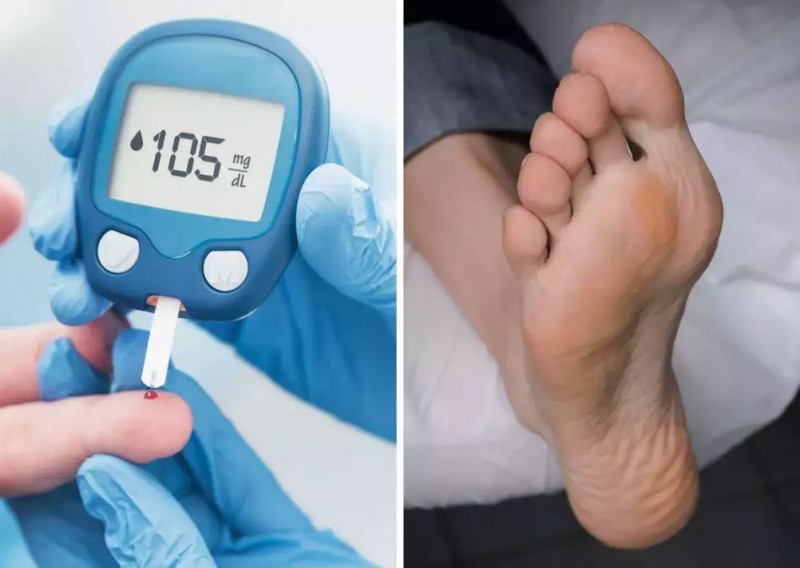
Diabetes is a chronic illness characterized by an uncontrolled increase in the concentration of glucose in the blood. Persistently high levels of glucose in the bloodstream can gradually pose a threat to several organs including the kidneys, heart, eyes, and various other body parts.
Understanding the symptoms of this serious disease becomes imperative. Let's delve into some common indications:
Blurred Vision: Sudden encounters with blurry vision can be a symptom of high blood sugar. Elevated blood sugar levels can affect the lens in the eye, leading to a change in its shape and impacting the ability to focus properly.
Cognitive Impairment: Prolonged periods of high blood sugar levels can influence cognitive functions. Issues such as memory lapses, difficulty in concentrating, and overall cognitive impairment may start to manifest.
Sleep Troubles and Fatigue: Individuals with uncontrolled diabetes often experience disruptions in their sleep patterns. Additionally, persistent fatigue may become a common complaint due to the body's inability to effectively utilize glucose for energy production.
Increased Vulnerability to Infections: A compromised immune system is another consequence of prolonged high blood sugar levels. This leads to an increased susceptibility to various infections such as urinary tract infections, skin infections, and other related ailments.
Unexplained Weight Fluctuations: Fluctuations in body weight can occur due to the imbalance of insulin in the body. Rapid and unexplained weight loss or weight gain might be indicative of poorly managed diabetes.
Slow Healing of Wounds: High blood sugar levels can impair the body's natural healing process. Even minor cuts and wounds may take a longer time to heal, increasing the risk of infection and complications.
Increased Thirst and Frequent Urination: Elevated blood sugar levels can lead to excessive thirst and frequent urination. The body tries to eliminate the excess glucose through urine, resulting in increased fluid intake and subsequently, increased trips to the bathroom.
Numbness and Tingling Sensations: Prolonged high blood sugar levels can result in nerve damage, leading to symptoms such as numbness, tingling, or a burning sensation in the hands and feet. This condition is known as diabetic neuropathy.
Gum Infections and Dental Problems: Diabetic individuals are more prone to gum infections and other dental issues due to compromised immunity and a higher susceptibility to bacterial infections. Regular dental check-ups are crucial for maintaining oral health.
Skin Complications: Diabetes can lead to various skin problems such as dry skin, itching, and the development of skin infections. Poor blood circulation and nerve damage can further contribute to skin complications in diabetic individuals.
Erectile Dysfunction (in males): Uncontrolled diabetes can affect blood flow and nerve sensitivity, leading to complications such as erectile dysfunction. Proper management of diabetes can help prevent or alleviate such complications.
Cardiovascular Issues: Diabetes significantly increases the risk of developing cardiovascular problems such as heart disease, heart attacks, and stroke. It is essential for diabetic patients to closely monitor their blood pressure, cholesterol levels, and adopt a heart-healthy lifestyle.
Foot Problems and Ulcers: Diabetic neuropathy and impaired blood circulation can lead to foot complications including foot ulcers, infections, and, in severe cases, even the risk of amputation. Regular foot examinations and proper foot care are vital for individuals with diabetes.
Mood Swings and Irritability: Fluctuations in blood sugar levels can contribute to mood swings and irritability. Unstable blood sugar levels can impact the production of hormones that regulate mood, leading to emotional instability and irritability.
Increased Hunger Pangs: Despite having consumed a meal, individuals with uncontrolled diabetes may experience frequent hunger pangs. This occurs due to the body's inability to utilize glucose properly, leading to a persistent feeling of hunger and the urge to consume more food.
Recognizing these signs and symptoms is crucial for timely intervention and effective management of diabetes. Regular monitoring of blood sugar levels, adherence to a balanced diet, maintaining a healthy weight, and engaging in regular physical activity are key measures for preventing complications and promoting overall well-being for individuals living with diabetes. Regular consultations with healthcare professionals and following a comprehensive treatment plan can significantly improve the quality of life for individuals with diabetes.
Navratri Detox: Cleansing Your Body and Mind for the Festival
National Nut Day 2023; Know the Superpowers of Pistachios, Almonds, Cashews, and More
What's Dehydration: Staying Healthy with Proper Water Intake